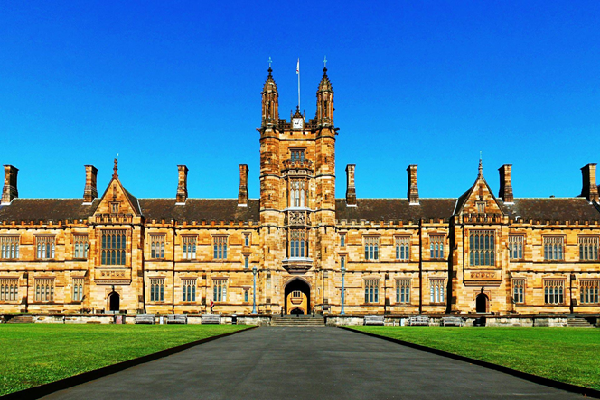Five Researchers from the University of Sydney Named as Winners of the 2023 Young Tall Poppy Awards
Among the recipients is Dr Rose Cairns, who was named the NSW Young Tall Poppy of the Year for 2023. She was recognised for her recent work on medicine safety, which involves ensuring medication is appropriately labelled and administered to prevent accidental or deliberate poisoning.
Dr Cairns cited alarming statistics such as poisoning being the primary cause of hospitalisation for self-harm in Australia and poisoning deaths now outnumbering the road toll and disproportionately affecting the young.
Dr Stephanie Partridge, Dr Giselle Yeo, Dr Jonathan Danon and Dr Clément Canonne joined Dr Cairns in being celebrated for their research, enthusiasm and contributions to the future of science, engineering, medicine and health.
The five University of Sydney researchers each took home Young Tall Poppy Awards at a ceremony in Sydney on 13 September.
The awards are given annually by the Australian Institute of Policy and Science (AIPS), and recognise early career researchers who have made outstanding achievements in their fields. The NSW Young Tall Poppy of the Year is announced during the ceremony, chosen from the state’s 12 winners.
The Young Tall Poppy winners will receive opportunities to further share their research through media, networking, training, public engagement and education.
Faculty of Medicine and Health

Dr Rose Cairns.
Dr Rose Cairns, Sydney Pharmacy School
Dr Rose Cairns is a Senior Lecturer at the School of Pharmacy and an Emerging Leadership Fellow at the National Health and Medical Research Council (NHMRC). She also has a clinical role as Senior Poisons Specialist (Research and Audit) at the New South Wales Poisons Information Centre, The Children’s Hospital, Westmead.
Dr Cairns’ research in poisonings, drug policy and scheduling has resulted in significant action. This includes investigations into methotrexate, codeine, paracetamol and pregabalin. Her work has led to changes in medicines scheduling, packaging, labelling and product information. She is also a member of the Therapeutic Goods Administration Advisory Committee on Chemicals Scheduling, providing expert toxicology advice on this national committee.
Dr Stephanie Partridge, School of Health Sciences

Dr Stephanie Partridge.
Dr Stephanie Partridge is a Senior Research Fellow and an Accredited Practising Dietitian in the School of Health Sciences, and member of the Charles Perkins Centre.
Dr Partridge works collaboratively with young people to understand how digital technology affects their dietary habits. She researches how young people use digital technology to access food, and how it can be used to positively impact their health. She is also developing digital health and wellbeing programs to help young people live healthy lifestyles.
Faculty of Science

Dr Giselle Yeo.
Dr Giselle Yeo, School of Life and Environmental Sciences
Dr Giselle Yeo is an NHMRC Emerging Leadership Fellow and Group leader at the Charles Perkins Centre and School of Life and Environmental Sciences.
Dr Yeo researches the regenerative potential of stem cells for a range of disorders and injuries. She seeks to understand how stem cells behave in response to their chemical and mechanical environment, and how materials can be enhanced to improve stem cell growth and regenerative function. She also directs the Amgen Biotech Experience program in Australia, which provides professional development and educational experiences for 50+ high schools in Sydney and Dubbo.
Dr Jonathan Danon, School of Chemistry

Dr Jonathan Danon.
Dr Jonathan Danon is from the School of Chemistry, and is an NHMRC Emerging Leadership Fellow. He started his journey at the University in 2017, quickly winning a University of Sydney Postdoctoral Fellowship in 2018, where he established his independent research program.
Dr Danon’s research focuses on developing novel compounds for studying and treating disorders of the brain. He is especially interested in using medicinal chemistry and PET imaging to study neuroinflammation.
Faculty of Engineering
Dr Clément Canonne, School of Computer Science

Dr Clement Canonne.
Dr Clément Canonne is an ARC DECRA Fellow, and a Lecturer in the School of Computer Science. He obtained his PhD in 2017 from Columbia University, before joining Stanford as a Motwani Postdoctoral Fellow and then IBM Research as a Goldstine Postdoctoral Fellow.
Clément’s research focuses on understanding the fundamental limits of machine learning and developing principled approaches to data privacy. He hopes to demystify topics such as algorithms, data privacy and computer science to a wider audience, and work towards fairer and wider access to these new technologies.

